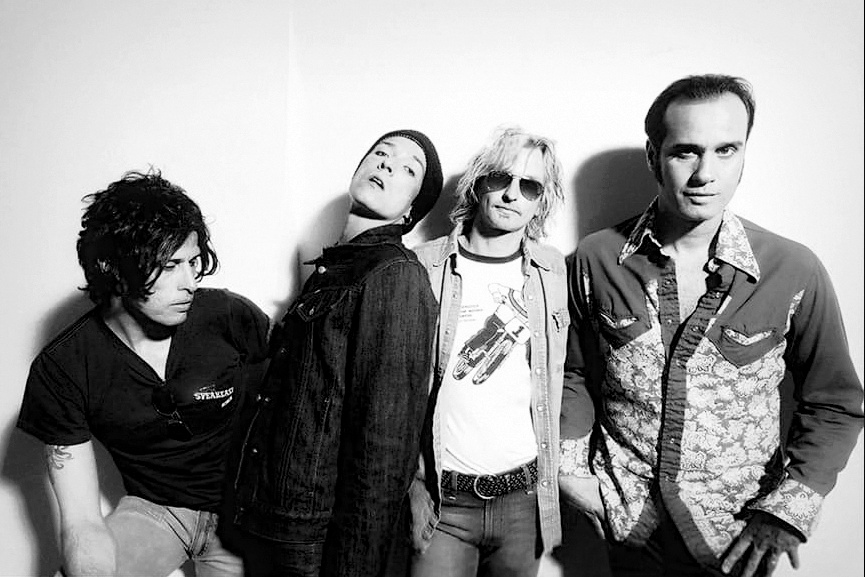
Episode 70 is here, the wheel is giving Sav something he never heard back in the day! The 2001 album, Shangri-La Dee Da by the band Stone Temple Pilots! How does it compare to their earlier efforts?
Shangri-La Dee Da is the fifth studio album by the American rock band Stone Temple Pilots. It was released on June 19, 2001, through Atlantic Records. Recording took place throughout the winter and spring of 2001 in a Malibu villa. It was the band’s fifth and final album to be produced by Brendan O’Brien and their last before breaking up in 2003.
Originally planned to be a double album, Shangri-La Dee Da contains thirteen tracks which range from heavy, distorted songs to psychedelic-inspired rock and acoustic ballads. “Days of the Week” and “Hollywood Bitch” were released as singles, with the former becoming a rock radio hit.
While Shangri-La Dee Da was not as commercially successful as its predecessors, it still sold well, reaching the top ten in the US and the top five in Canada and being certified Gold in both countries. The album received positive reviews from critics, with many praising the variety of moods across the album. The band toured throughout the rest of 2001 to promote the album, including embarking on The Family Values Tour with Linkin Park and others in October and November of that year.
Stone Temple Pilots
Scott Weiland – lead vocals, keyboards (2, 8, 9)
Dean DeLeo – guitar
Robert DeLeo – bass, backing vocals
Eric Kretz – drums, percussion
Production
Brendan O’Brien – producer, mixing, keyboards (2, 6, 7, 10), percussion (2, 4, 8, 11)
Nick DiDia – recording engineer
Doug Grean – engineer
Billy Bowers – engineer
Karl Egsieker – recording, mix assistant
Ryan Williams – mix assistant
Bob Ludwig – mastering
Erin Haley, Cheryl Mondello – production coordinators
Additional Personnel
Gregory Sylvester – art direction
Chapman Baehler – art direction, photography
Intro Music/Wheel Spin Music by LiteSaturation from Pixabay

Fair Use
* Copyright Disclaimer Under Section 107 of the Copyright Act 1976, allowance is made for "fair use" for purposes such as criticism, comment, news reporting, teaching, scholarship, and research. Fair use is a use permitted by copyright statute that might otherwise be infringing. Non-profit, educational, or personal use tips the balance in favor of fair use. No copyright infringement intended. ALL RIGHTS BELONG TO THEIR RESPECTIVE OWNERS
This is our musical reaction, breakdown, and commentary analysis of the song. We intend no copyright infringement, and this is not a replacement for listening to the artist's music. The content made available through this site is for educational and informational purposes only.
The site may contain copyrighted material owned by a third party, the use of which has not always been specifically authorized by the copyright owner. Notwithstanding a copyright owner’s rights under the Copyright Act, Section 107 of the Copyright Act allows limited use of copyrighted material without requiring permission from the rights holders, for purposes such as education, criticism, comment, news reporting, teaching, scholarship, and research. These so-called “fair uses” are permitted even if the use of the work would otherwise be infringing. *





